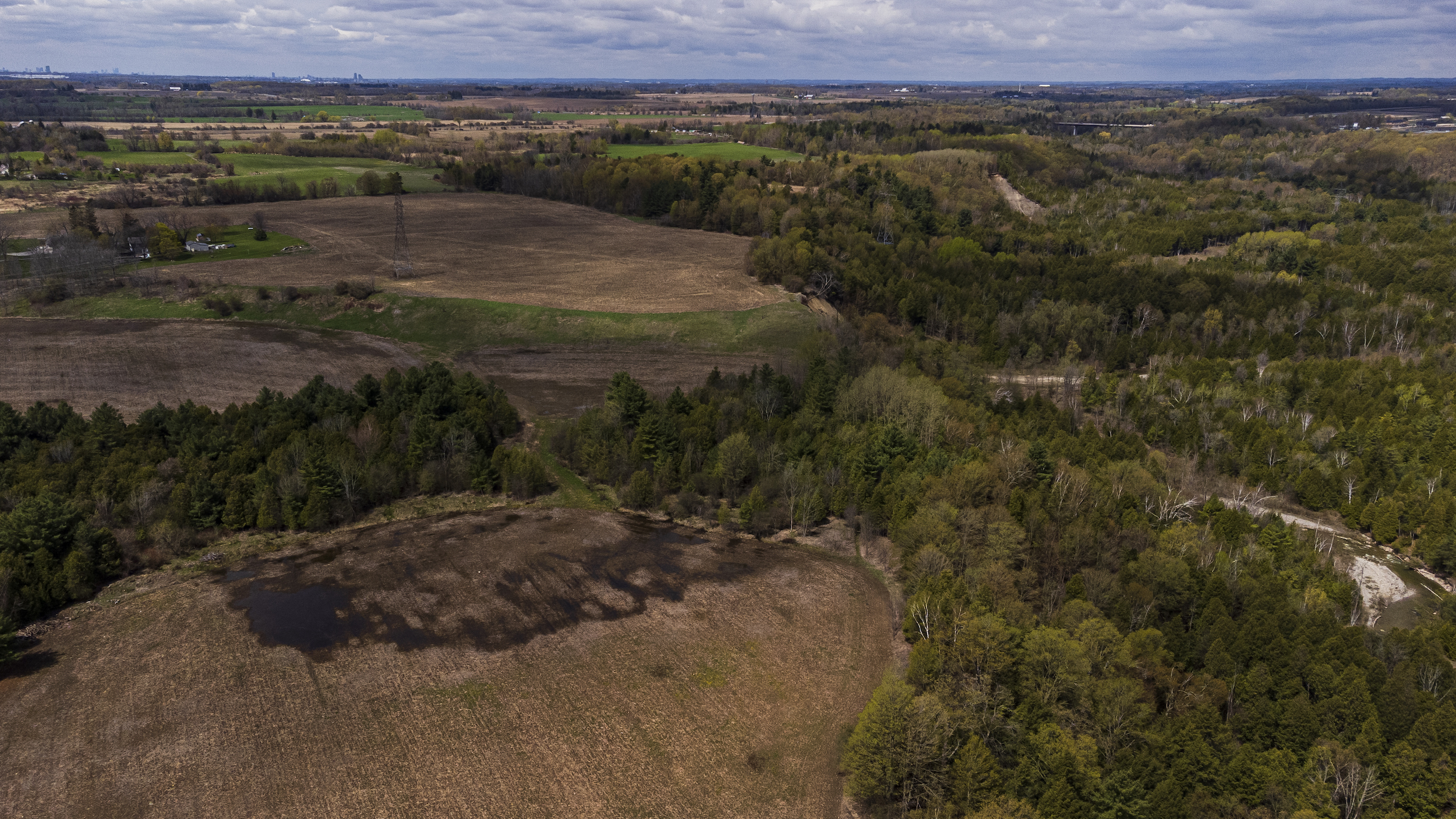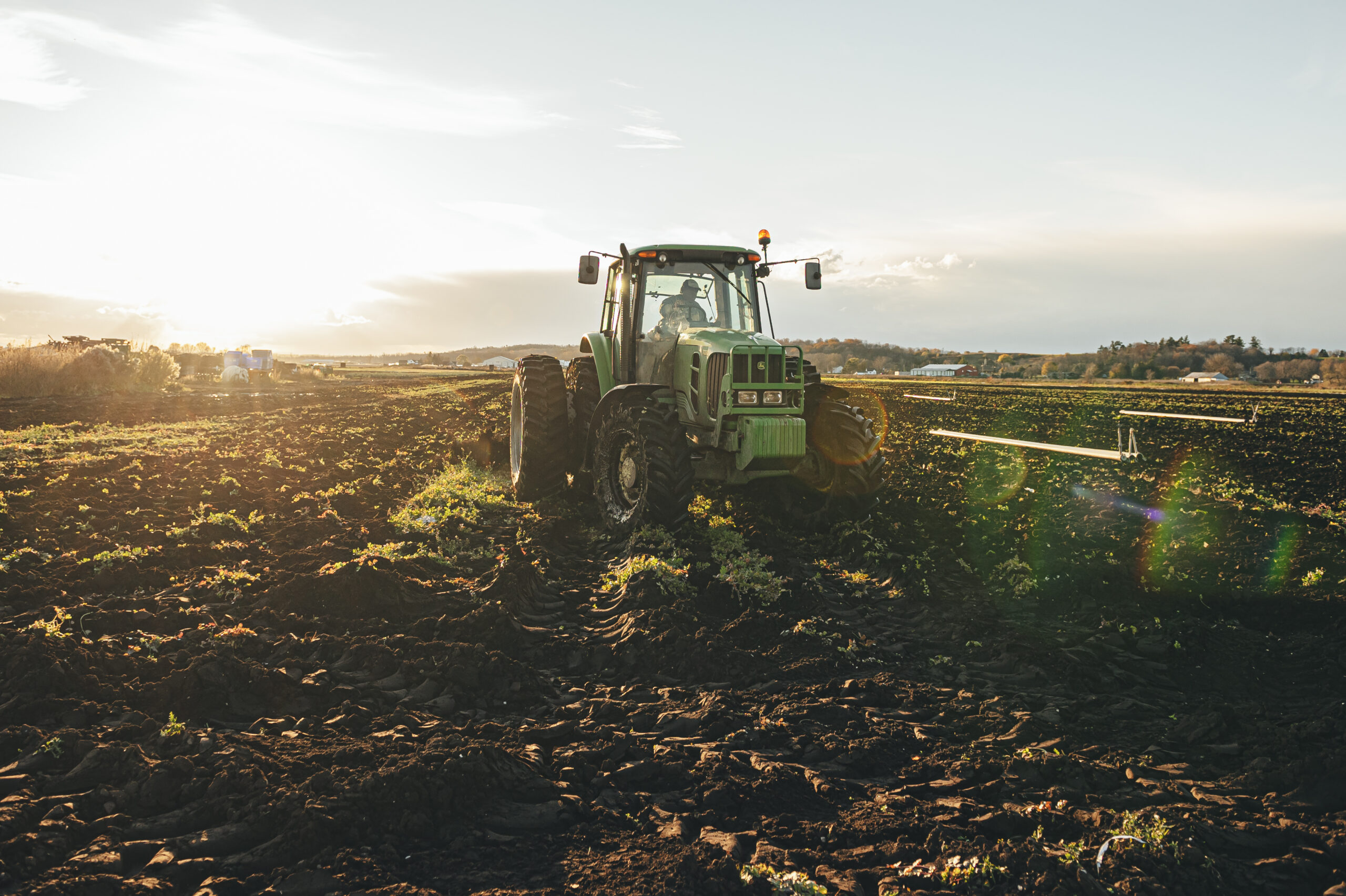
‘Afraid of the water’? Life in a city that dumps billions of litres of raw sewage into lakes and rivers
10 billion litres of sewage are dumped into Winnipeg’s lakes and rivers each year. Some...
Doug Ford says any houses built on formerly protected Greenbelt lands will help young people and immigrants achieve the “Ontario dream.”
That dream, he said last week, is to start a business or “get a fabulous job at a company that’s paying really well,” save a lot of money and then put down a deposit on “a place to call home.”
“This province is built on people coming from all over the world believing in the Ontario dream,” Ford said on Aug. 9, during a press conference held in response to a damning report about his government’s decision to open 3,000 hectares of protected farmland and natural space in Ontario’s Greenbelt to development.
The process of choosing what land to open, the report by the province’s auditor general found, was directed not by planners or environmental experts, but by a non-elected political staffer who gave “preferential treatment” to developers with longstanding ties to Ford or his Progressive Conservative party, and are now set to see billions of dollars in profit.
As the auditor general found and The Narwhal has previously reported, these particular lands are a curious choice for housing. Southern Ontario already had enough land designated for residential development to meet its population growth targets. And unlike much of these environmentally sensitive Greenbelt lands, those sites already have the sewers and other infrastructure necessary for homes.
Yet despite public protests and calls from farmers, opposition politicians and the auditor general herself, the premier refuses to reevaluate the decision to open these protected lands to development. He instead looks forward to the day these farmlands and wetlands are full of housing complexes — homes, he said that will “absolutely” be bought by immigrants and refugees.
“I can’t wait to walk through that community, knock on their door, say hello, and thank them for coming here,” he said. “And thank them for having confidence in our government.”

I am a young person and an immigrant and I don’t recognize the Ontario dream the premier is describing. As a 30-something who has watched as housing prices increase to ten times more than the average income in Toronto over the last three years alone, the idea that building on a farm or a floodplain will somehow put a single-family home in my price range is ludicrous.
But what concerns me more is that the premier and his cabinet continue to claim an unprecedented influx of immigrants and refugees are forcing them to build quickly, despite environmental damage. Ford is pinning housing unaffordability on newcomers while confusingly framing them as the solution to the crisis. His narrative is both simplistic and dangerous, painting an unrealistic image of a future where immigrants and refugees end the housing crisis by moving to the Greenbelt, even if it locks them into underserved communities and brutal commutes and everyone else into dire environmental consequences.
I’ve written about this before: Ford keeps blaming the federal government for allowing in the immigrants that supposedly caused Ontario’s housing crisis, even though his government specifically asked for more newcomers to be settled here because of our worker shortage.
What’s new now is the detailed timeline in the auditor general’s report, which makes it clear Ontario’s plans to open parts of the Greenbelt were underway months before the federal government released higher immigration targets last November.
Population growth in Canada isn’t natural; choices are made by leaders every day. And the cause and effect here doesn’t support the premier’s choice the way he’d like it to.
Still Ford keeps doubling down on his argument, which now encompasses the most vulnerable newcomers. At the Aug. 9 press conference, a TVO reporter asked the premier to clarify whether he expects all people in the province — specifically including refugees — will be able to afford the houses planned in the Greenbelt. Ford didn’t hesitate: “Eventually they will, that’s the Ontario story.”
It’s a statement that shows he does not understand the diversities and complexities of the immigrant experience. Just two months ago, a group of mainly east African refugees fleeing violence and persecution were left sleeping in the streets after Toronto’s overcrowded shelter system turned them away, citing lack of federal funding.
“When I talk to refugees and asylum seekers about why they come here … they’re not coming here for business but to be safe,” Diana Chan McNally, a frontline worker supporting people without homes in Toronto, said. “They don’t have access to money or resources. When they get here, there isn’t a lot they can do or access themselves. It’s a long, slow process to get to a point of stability — if at all.”
“So when Doug Ford tells newcomers they’re here for the Ontario dream, he’s selling them a fabrication,” Chan McNally said. “That dream isn’t true for anybody. And it hasn’t looked good in a long time.”
The journey from the indignity of being unhoused to moving into Ford’s mythical subdivision is literally unreal: according to Statistics Canada, the median wage of an immigrant that had been in the country for a year was $31,900 in 2019. Meanwhile, the average price of a house in Ontario is currently about $910,100.
And it’s not terribly reassuring that Ford and his spokespeople have recently promised that 10 per cent of the 50,000 houses built on the newly opened lands will be “affordable” since the Progressive Conservatives defined that to mean 80 per cent of the market rate last fall. A total of 5,000 homes priced at $728,000 (plus inflation) that won’t be ready for years isn’t much of an attack on the housing crisis.
Yes, some immigrants have the means to get into Canada’s skyrocketing housing market. Some would be willing to live in the far-flung communities being planned in former Greenbelt lands. But for far more, home ownership just isn’t economically feasible.
And despite a desire for a permanent roof over their heads, many immigrants recognize that they need other things the Greenbelt provides too — food from the farms and clean water from the wetlands all set to be paved over.

Asim, a 35-year-old refugee from Pakistan, moved to Mississauga, Ont., a few months after last year’s floods — one of the deadliest and costliest natural disasters the world has seen to date — destroyed his family’s home on the outskirts of Karachi. Now it’s just a sea of debris, temporary shelters and campsites as people figure out what to do with their lives when they have nothing left.
“I just want a life that is safe,” he said, asking his last name not be used as he goes through his refugee claim process. “Right now I can’t even think about home ownership. I don’t even have a permanent address yet. I live in basements and shelters while I figure it all out.” That will take a while — the average wait time for a federal refugee claim is up to two years.
Meanwhile, Asim, a civil engineer, is working in a Mississauga factory as a packaging assistant. He earns $15 an hour and works eight-hour shifts, five days a week. The average price of a one-bedroom apartment in the city is currently more than $2,300, which would take up almost all his earnings.
It’s a tiring, stressful life, but “I’m one of the lucky ones,” Asim said. “I was able to leave and now I get to enjoy the Greenbelt.” He spent the summer exploring farms and conservation areas, wishing natural spaces in Pakistan enjoyed the same respect and protections.
“Everyone always says Canada cares about immigrants and about the environment so I don’t understand what Ontario is doing,” he said. “For so many of us, our dream is to have a better life. Destroying parts of the Greenbelt won’t help us achieve that.”
“The reality is you can shut down immigration tomorrow and Ontario would still have a housing crisis,” Alfred Lam, the board chair of the Ontario Council of Agencies Serving Immigrants, said. The pandemic showed that: when the borders were closed for a year, home prices still increased drastically.
“The reality also is that immigrant communities need a lot more than just roofs over their heads. Migrant communities don’t own cars and are reliant on public transportation and accessible social services,” Lam added. “When we look at the housing needs of immigrants, or anyone really, we’re not just talking about a place to call home but a place to live a life.”

North Americans often have a hard time thinking outside the box of home ownership, despite its many flaws: the financial struggles it creates, the way it has entrenched racism and inequality in Canada and beyond, and how it encourages the suburban sprawl that creates car dependency and worsens the climate crisis.
A housing crisis is bigger than how many people can’t afford a roof; it’s about how many people can’t create a safe, sustainable life. Immigrants and refugees might understand this best: a roof doesn’t protect you from violence or natural disasters, especially if your expensive new home is built on a floodplain. A roof doesn’t guarantee access to medical care, affordable groceries or the jobs you’re actually qualified for.
Perhaps that’s why something feels scary about the simplified narrative Ford is creating, of an Ontario dream catering to an imagined immigrant community while leaving many that already live here behind. In recent comments, he has gone as far to say that not building housing “threatens to erode one of our core Canadian values: our so-far-unwavering support for immigration.”
The trouble is Ford’s comments might lead us to that erosion instead. The idea that Ontario needs to destroy endangered species habitat and farmland to build new houses that will be bought by immigrants pits the needs of those who live here now — many of whom are struggling to pay their housing costs while they serve as the blue-collar backbone of Ontario’s economy — against a rich, foreign horde set to descend in the future.
Ford doesn’t see that. When I pointed out the danger in his message at the Aug. 9 press conference, his response was that he talks to immigrants “every single day” and immigrant members of his caucus show it’s possible to come to Ontario, work hard and buy a house. My suggestion that newcomers might not be able to afford — or might not want — houses built in the Greenbelt by developers who got what the auditor general called “preferential treatment” made him “almost fall off the podium,” he said two days later.
Let me spell this out as clearly as possible. Yes, there are immigrants who can afford a house in a new Greenbelt suburb, but there are many more who cannot. These new, future Ontarians are being fed a housing policy that benefits developers first and foremost, one that pushes them away from urban areas to places without transit and no public infrastructure, built over farms that could have fed them and wetlands that could have protected them from floods.
While the premier might talk to immigrants every day, the auditor general found this development plan was created without consulting the public.
Maybe Ford talks to immigrants, but in this case, he certainly didn’t listen to them — or their dreams.
Get the inside scoop on The Narwhal’s environment and climate reporting by signing up for our free newsletter. On a warm September evening nearly 15...
Continue reading
10 billion litres of sewage are dumped into Winnipeg’s lakes and rivers each year. Some...

Court sides with Xatśūll First Nation, temporarily halting Mount Polley mine waste expansion

Break out the champagne: Emma’s storied life and leadership in journalism has earned her the...
